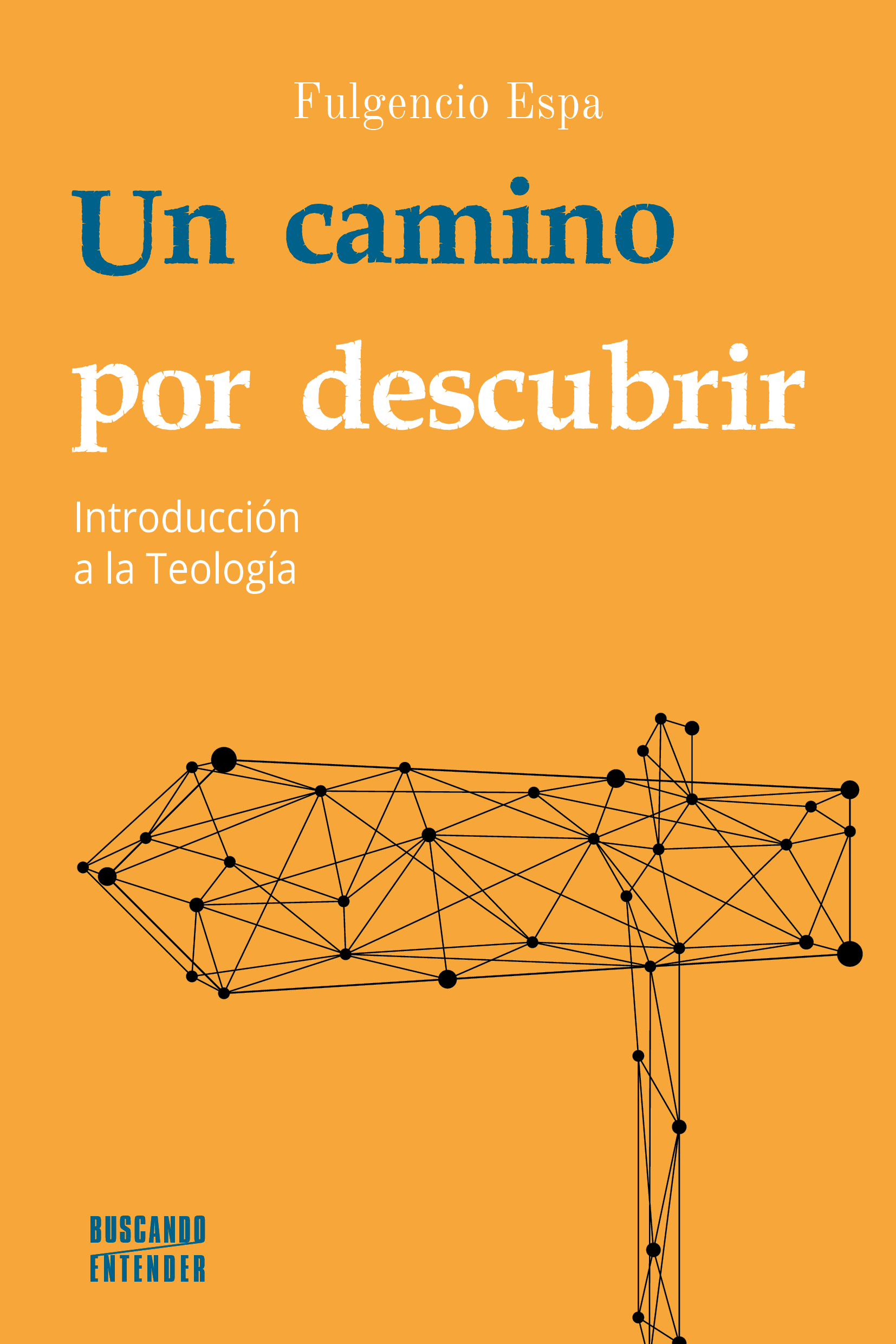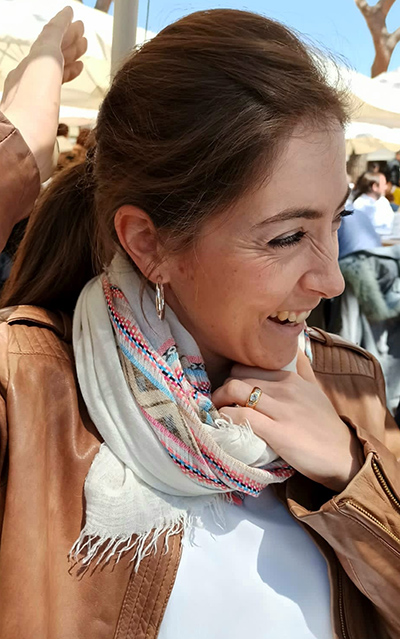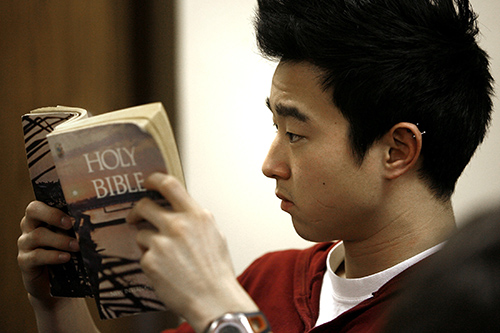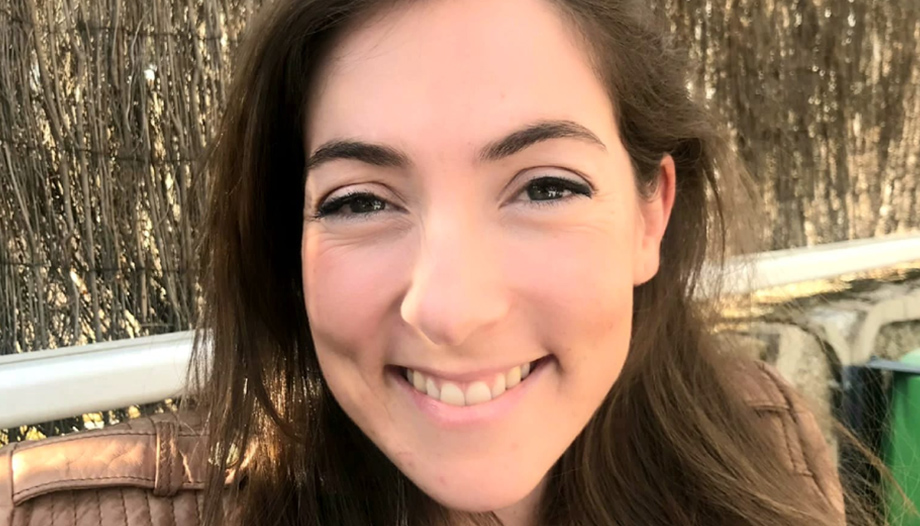For centuries, several exclamations of St. Augustine have been known in his works, especially in the Confessions. One of them can be seen in many Catholic temples: "You made us for yourself and our heart is restless until it rests in you". Another is the famous "Late have I loved thee, late have I loved thee, O beauty so ancient and so new, late have I loved thee! And behold, thou wast within me, and I was without, and without I sought thee; and deformed as I was, I threw myself upon these beautiful things which thou hast created. You were with me, but I was not with you".
When reviewing those phrases, a few days ago, I remembered a poem by Nietzsche, dedicated to the unknown God. There, when he was 20 years old, the German philosopher said in 1864: "I want to know you, Unknown One, you who delve into my soul, who furrows my life like a storm, you, ungraspable, my fellow man! I want to know you, I want to serve you". I have seen it commented by the professor of Theology, Ramiro Pellitero, collaborator of Omnes.
Pope Francis reflected a few years ago, on August 28, on the restlessness of St. Augustine, and said that "in these words is the synthesis of his whole life". And he asked himself: "What fundamental restlessness does Augustine live in his life? Or perhaps I should say rather: what restlessness does this great man and saint invite us to awaken and keep alive in our lives? I propose three: the restlessness of spiritual search, the restlessness of the encounter with God, the restlessness of love".
These days I have been engrossed in a book written by Fulgencio Espa, entitled A path to be discovered. Introduction to theologyby Ediciones Palabra. It is included in an ambitious collection directed by Professor Nicolás Alvarez de las Asturias, Seeking to understandbut could be called, for example, Theology for allor within everyone's reach. It is aimed at anyone interested in deepening their faith, without needing more initial formation than that received on the occasion of the reception of the sacraments of Christian initiation. There will be five volumes per year, until 2024.

Knowing the faith better
Some people used to say to St. Augustine: "I must understand in order to believe". And the holy Bishop of Hippo replied: "Believe in order to understand". In the end, as he himself acknowledged, "we both speak the truth. Let us agree. Indeed, "one believes in order to understand and one understands in order to believe. Theology is precisely that knowledge: the science dedicated to deepen the faith and its mysteries: the Trinity, Christ, grace, the Virgin, the Church...", writes Espa.
Increasingly, it is true that many lay people are looking for ways to come closer to the faith and to know it better. In parishes, in groups, with friends. There are materials available. For example, the Compendium of the Catechism of Christian Doctrine, many works... This Collection of the Word can be one of these aids.
"We have to have the courage to explain faith," said University of Notre Dame professor Tracey Rowland at an Omnes Forum a few days ago. Well, today we chat with Isabel Saiz Ros, who writes a couple of books in the Collection, on Theological Anthropology, and who will soon explain what that consists of.
This Madrilenian is a good example of a person with civil studies, Law and Business Administration, who works in a business consultancy, and who explains how studying Theology in Rome has "changed" her, to the point of obtaining the Baccalaureate of Theology with university rank, in this case at the Pontifical University of the Holy Cross.
Before entering into the conversation, Isabel Saiz acknowledges at the outset: "It is true that this has meant a before and after in my way of conceiving the world... In this sense, I would love it if everyone could 'access' theology and make 'their personal discoveries'".
First of all, a brief review of its trajectory...
-I studied law and business administration mainly for a practical reason, thinking about the breadth of career opportunities. Maybe also because it was the fashionable career and because my parents have a business consultancy. I liked the career, although it cost me a lot (especially the number subjects).
As I progressed through my studies, it seemed to me that, on the one hand, I was more capable of understanding how the world we live in works: the reasons for economic crises, the functioning of political systems, the legal relationships behind each reality, etc. But, at the same time, the underlying ideas - the whys, let's say - that I managed to grasp in each subject seemed to me contradictory, biased and insufficient, sometimes too ideological.
Each teacher spoke according to his own way of understanding the world, his own vision of man, his personal philosophy or ideology. The great contrast I saw between the way of understanding the world that had been transmitted to me at home and the one I could perceive around me, fueled my desire for a deeper Christian formation, so I considered the possibility of going to Rome to study theology.
Certainly the study of Theology has exceeded my expectations, and by far.
What has studying theology brought you?
-Theological studies have given me a complete and unifying vision of reality. They make you able to see everything in unity, to build a clear story, with a beginning and an end, in which each piece fits. Dogmas are not as "dogmatic" as they seem, because they are "to a certain extent" explainable, morality is actually the way to become truly happy, evil can be explained and pain and suffering acquire a deep value and meaning... Theology allows you to acquire a knowledge that penetrates the reasons, to see reality with a new depth and beauty. In the end, you find the reason for everything in a God who is Love and whose Face is Christ.
At the same time, paradoxically, although it seems that "everything could be explained," in reality nothing can ever be fully explained. God seems to show Himself and to veil Himself at the same time. Theology has helped me to understand that the proper attitude to approach things is humility, for the Mystery can never be fully apprehended. Reasonableness and mystery go hand in hand.
In the classes they repeated a lot this idea that when a theologian reached a summit he always found a saint there. It is true, in order to enter into the mysteries of the merciful heart of God, theology is not enough, but prayer is also necessary. Doctrine and piety. Theology and personal relationship with Christ.
You also teach theology, can you tell Omnes visitors and readers about the interest you have found in teaching it to ordinary people, and the difficulties you encounter?
-I think that interest is something you have to know how to awaken and for that it is important to play the right keys. Although we may not express it in the same way or we may not be aware of it in the same way, in reality we all long for the same thing. To bring out that deep desire for God that we all have, it is important to know, on the one hand, what we men and women of today connect with, what worries us, what hurts us, what frightens us....
And also, on the other hand, the languages and ways to use to connect and transmit the message. Basically, it is to be able to know who you have in front of you and to get to know them. For example, when explaining Creation, you could start from evolutionism, since it is something we all understand, and from there, explain how God creates from nothing, which is perfectly compatible with evolutionism.
In this sense, the difficulties are exactly the same as those I may have. In order to be able to understand the faith in all its beauty and depth, one must start from an adequate philosophy, but philosophical formation is increasingly poor, so we must start from the bottom, from the basics, without taking anything for granted.
Interest is something you have to know how to awaken and for that it is important to play the right keys.
Isabel Saiz
The study of the Trinity, for example, is based on a series of philosophical concepts -substance, accident, person...-, which I need to know beforehand. One of the consequences of the loss of philosophical realism is the relativism in which - consciously or not - we live. This is another great difficulty, to come to understand that things are as they are, and I discover them.
In order to be intellectually open to know the faith, I have to start from the idea that it is a matter of making a journey to go deeper into the truth of things. The truths of faith are not just another vision of the world, a theory like any other, but realities that I am invited to discover.
What challenges do you perceive in trying to explain to people theological anthropology, of which you are going to publish a book? I don't think people know what it means?
-I believe that the great challenge in teaching theology is no different from the challenge facing the Church: to be able to show the true face of Christ to men and women of every time and place.
What was said above is valid for this. It is important to get to know the person in front of you and, starting from his conception of the world, try to show him Christ. It is a matter of connecting not only intellectually but also affectively: to reach the head and fill the heart.
Let's go to theological anthropology...

-When I told my family that I had been asked to collaborate in the preparation of a book on theological anthropology, one of my brothers asked me if theological anthropology consisted of studying how different peoples and cultures have seen and view God, the divinity.
I was amused because it is just the opposite. More than studying how men see God (what could be called "anthropological theology"), it is about deepening the vision of God towards man: it is about understanding the human being in all his depth and beauty, from God.
And this understanding passes through the study of the creation of man and woman in the image and likeness of God, created for happiness, which is identified with communion with the Creator, with the free response to God's love, with collaboration with Him in the perfection of the world, through their work and procreation.
And further down the road?
-Secondly, theological anthropology studies how, at the beginning of time, human beings freely decided to reject God. This sin committed at the beginning (original sin) explains evil, pain, death and the deep wounds that each of us can see in our heart, in our being: our difficulty to know what is good, to desire it and to realize it.
But God's love and mercy do not stop at this rejection of man; on the contrary, they lead God to give himself to him to the point of becoming man and dying on a cross, so that with his Life, Death and Resurrection man can once again be in communion with God, can once again become a child of God and participate in his eternal happiness.
It is about discovering that each one of us is called to happiness with capital letters.
Isabel Saiz
Theological anthropology delves into the meaning of the life of grace: that great gift that God has given us to make us his children, to make us sharers in his own life.
In Christ man discovers what he is called to, to communion with the Father through union with Him, to be truly man, woman, which is nothing other than allowing the Holy Spirit to transform us into Christ. In Christ I can see what I am called to be, my best version, my fullest and most authentic self, and it is Christ himself who transforms me, through grace and my free collaboration.
How could you synthesize it?
-In short, it is a matter of discovering that each one of us, despite our wounds and our weaknesses - and often thanks to them - is called to happiness with a capital letter, to communion with God, to the life of grace given to us in Christ.
Comment on what comes to your mind about some current issues. It seems that the reception of the sacraments is decreasing, do we know what the sacraments are?
-The secularization of Western society -not only in Spain- is an indisputable fact. It is not surprising that the data reveal less and less affection for the Church and less religious practice. This is the trend in our societies, not for decades, but for centuries.
There are many studies that analyze the ultimate causes of this secularization, the philosophical roots that have caused the "paradigm shift", the passage from medieval "Christianitas" to modern secularism, passing through the Renaissance, the Enlightenment, Modernism, etc. I think it is necessary to know how things have been happening historically, how and why we have arrived at the society in which we live. But not so much to "look for culprits" and lament for a past that perhaps never existed, but to be able to understand today's world and today's man in all his depth. With its lights and shadows. With his weaknesses and his strengths. With his sins and his virtues. We cannot look at the past with regret, at the present with rejection and at the future with dread.
Perhaps knowing history also helps to relativize "the drama of secularism," which is not to deny it and look the other way, but to put it in its place. In every age, Christians have had to face a multitude of difficulties, misunderstandings and inconsistencies both "inside" and "outside. Christianity is scandalous because Christ is scandalous and always will be.
In some countries, persecution may follow.
-I believe that this situation of secularization, even intellectual, legislative and cultural persecution, can be an opportunity that God gives us for Christians in the West to rediscover precisely this, that persecution-whether violent and conspicuous or silent but even more insidious-is part of the Christian's life.
It is also a time for us to grow in trust in God, in hope. If we can no longer expect anything from social structures, from the State, from laws, we will have to expect it from God. And from a God who is the Lord of History and directs it. It can also be a good moment to grow in the responsibility that each one of us has to bring the world to God, to bring the world closer to God and God to the world, through our work, our prayer, our sincere dedication to all, our social concern, etc. Perhaps God will also allow this so that we go to the essential, so that we rediscover that what is truly important is my personal relationship with Christ.
I don't want to sound negative, but the interest of young people in religion is low, according to several studies..
-When I studied, religion was compulsory and counted for the average -which was an incentive to study it, which is not the case now. Religion teachers have it very difficult, they are real heroes because they have everything against them, especially in certain environments.

But all that effort is not in vain, as Pope Francis says in Evangelii GaudiumSince we do not always see these sprouts, we need an inner certainty and that is the conviction that God can act in any circumstance, even in the midst of apparent failures [...]. It is knowing with certainty that those who offer and give themselves to God out of love will surely be fruitful (cf. Jn 15:5). Such fruitfulness is often invisible, unsearchable, it cannot be counted. One knows well that his life will bear fruit, but without pretending to know how, or where, or when. He has the assurance that none of his labors carried out with love are lost, none of his sincere concern for others is lost, none of his acts of love for God are lost, no generous fatigue is lost, no painful patience is lost [...]" (Evangelii Gaudium, 279)..
My experience is that the Christian proposal continues to fill with light the hearts of young people who encounter Him, sometimes in the most unexpected way. In any case, the "apparent failure" of religion classes, of catechesis, of the different ways and instruments to show Christ, serves as an apprenticeship and encourages us to think of new ways and means, to rethink, to reinvent ourselves again and again, which is not to say something different, but the same message in new ways.
And solidarity in our country is, however, high, and has been shown during the pandemic.
-I believe that we young people have been inculcated, in one way or another, with concern for the needy. At least that is my experience. I don't remember anyone telling me, right off the bat, "no, I'm not into that" or anything like that, to a proposal to do something as a volunteer. And of course it is incredible how many initiatives there are and are emerging, of all types and modalities, to try to help the needy in some way (from bringing hot coffee to the homeless to spending two months in Calcutta with the poorest of the poor).
The pandemic has also seen an explosion of solidarity: young people who have taken food to the most affected neighborhoods, non-practicing doctors who have volunteered to care for covid patients, even volunteers for clinical trials of vaccines, and so on.
In this sense, the latest reflections of Pope Francis on universal fraternity in his encyclical "Fratelli Tutti", and his personal example of sincere and profound love for those most in need, are a continuous stimulus to look at others, not only those closest to me, but everyone.
We conclude our conversation with Isabel Saiz, whose positive and hopeful outlook is encouraging. You can read it in the collection Seeking to UnderstandEdiciones Palabra, directed, as mentioned above, by Professor Nicolás Alvarez de las Asturias. Through him, you will be able to contact the authors, among whom are, among others, José Manuel Horcajo, doctor in Theology as Fulgencio Espa, and parish priest also in Madrid.











